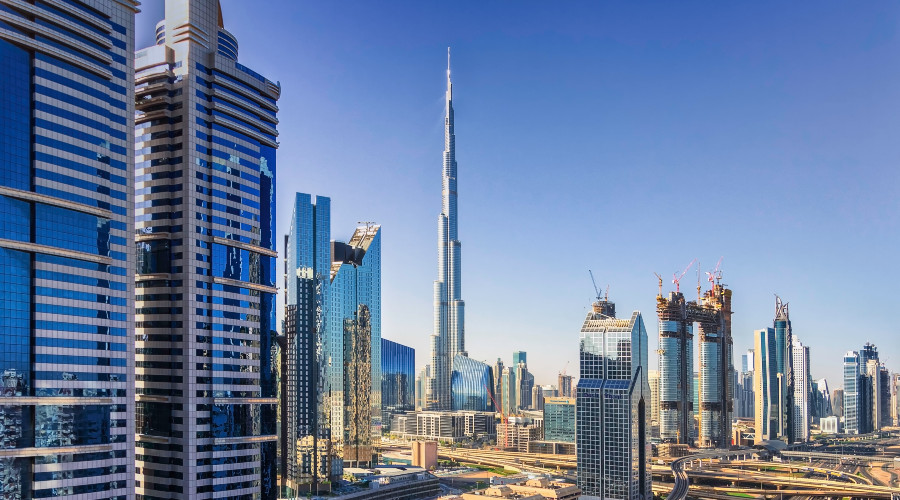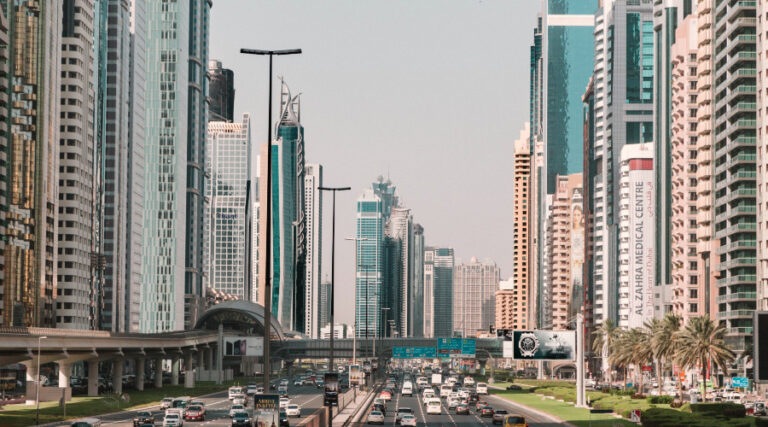For aspiring property investors and entrepreneurs, Dubai is a city of gleaming skyscrapers and golden opportunities. It’s not just a hotspot for tourism. It’s an ever-evolving marketplace where real estate can be both a lucrative investment and a complex maze. But why is Dubai such an intriguing puzzle for our readers? Beyond the opulent skyscrapers and lavish resorts, Dubai offers a fascinating intersection of Islamic culture and global business dynamics.
Whether you’re a seasoned businessperson from the Islamic world or a budding entrepreneur interested in business in Dubai, understanding the property market here is crucial. This expanded guide aims to demystify the complexities surrounding property investment in Dubai, digging deep into the legal landscape, financial aspects, potential risks, and emerging trends.
Understanding property laws

If you have decided to invest in Dubai’s property, the first path you’ll walk is one bound by legal frameworks. Dubai is a city in a country with its specific laws, some of which are a mix of Islamic and international standards. It’s not just about having the capital to invest; it’s about understanding the complex labyrinth of laws and regulations that your investment will be subjected to.
This section is especially beneficial if you’re dealing with cross-border legal issues and are familiar with terms like private international law. We will delve into the important legal prerequisites and conditions you should know before making any moves in the real estate market.
Important legal prerequisites and conditions
Purchasing property in Dubai isn’t just a financial investment. It’s a legal commitment. The allure of skyscrapers and luxurious villas can be compelling, but the legal landscape underlying these architectural wonders is rather complicated. For a foreign investor or even for an expatriate resident, the terrain can seem challenging to navigate.
That’s why we’ve prepared a comprehensive guide to help you understand the critical legal prerequisites and conditions. This guide will protect your investment and pave the way for a smoother, more informed property-buying experience.
Ownership rights for foreigners
In 2002, the Dubai government loosened its ownership restrictions, allowing foreigners to have freehold ownership, leasehold, or usufruct rights over the property. However, this privilege is location-dependent, primarily in “freehold zones.” Before investing, ensure you can legally own property in your targeted area.
The role of escrow accounts
Dubai has a robust mechanism to protect both buyers and sellers through the use of escrow accounts. A developer must have an escrow account where all the funds the buyers pay are deposited. This money can only be used to construct the said property, offering a level of security to the investor.
Property registration
One must recognize how important is proper documentation in Dubai. The Dubai Land Department is the ultimate authority for all land-related transactions. Once you have decided on a property, your next step is officially registering it. The absence of proper registration can lead to severe legal complications.
Off-Plan purchases
Investing in off-plan properties can be lucrative but also risky. Ensuring the developer is registered with the Real Estate Regulatory Agency (RERA) is crucial. Ensure you study the Sale and Purchase Agreement (SPA) carefully, as it outlines your rights and obligations, including the completion date and the compensation process in case of delays.
Due diligence
While not a legal prerequisite, due diligence serves as a critical step before any substantial investment. Ensure you perform a background check on your developer. Examine their past projects, financial stability, and reputation in the market. Also, consult legal experts familiar with Dubai’s property laws.
Islamic finance compliance
Since Dubai is an Islamic city, considerations around Islamic Finance become pivotal. Some investors may seek to ensure their investment aligns with Islamic laws on finance and property. Understanding the nuances of Sharia-compliant property investment can offer an edge, especially if you are deeply rooted in Islamic traditions.
Link to resources
For more details and real-time updates on legal norms, consult the Dubai Land Department. Also, keep an eye on the latest business in Dubai trends.
By understanding these legal prerequisites, you position yourself as an investor and well-informed participant in Dubai’s real estate market. This knowledge isn’t just power. It’s your shield against potential pitfalls and legal complications that might arise during your property-buying journey.
Financial implications

If the legalities are the skeleton of your property investment in Dubai, then finance is undoubtedly its lifeblood. While the vision of owning property in one of the world’s most luxurious cities is tempting, the financial commitments can be staggering. We will break down the numbers for you — from initial investment and maintenance fees to the hidden costs that can sneak up on you. More than just providing figures, we’ll also offer strategies to manage these costs effectively.
The average cost of a two-bedroom apartment in a prime location can range between AED 1.5 to 2 million. Apart from the property price, there are other charges like a 4% land registry fee, a 2% real estate agency fee, and mortgage setup costs if you’re financing your purchase. Then there are running costs like service charges, utilities, and insurance.
Risks: If you fail to consider these costs, you might end up with a financial burden that can lead to legal complications or loss of property.
Risks and their mitigation
Higher returns usually come at the cost of higher risks in the world of investments. However, Dubai’s property market risks are not just financial. They can be legal, cultural, and even political. Therefore, understanding the full spectrum of risks is not just a smart move but a crucial one. We will outline common pitfalls and how to mitigate them, providing a comprehensive understanding of what you’re signing up for when you buy property in Dubai.
- Market Fluctuation: Property prices in Dubai can be volatile. It can either work in your favor, offering lucrative returns, or against you, causing financial loss.
- Legal Risks: Failure to comply with legal procedures or not understanding your rights can result in issues like property seizures.
- Economic Climate: Political unrest, global economic downturns, and changes in local laws can impact property prices.
Investing in properties with high rental yields, ensuring legal compliance, and keeping an eye on economic indicators is advisable to mitigate these risks.
Trending now: smart homes
Smart homes, offering automation, security, and energy efficiency, are the latest trend in Dubai’s property market.
Given the Islamic culture’s emphasis on community, safety, and environmental stewardship, smart homes can be an excellent long-term investment for our readers.
Conclusion
Embarking on a property investment journey in Dubai promises excellent rewards but comes with complexities and risks. Understanding legal frameworks, having a transparent view of all associated costs, and being aware of market trends can mean the difference between a successful investment and a financial misadventure.
With the growing interest in business in Dubai, especially among entrepreneurs from the Islamic world, the time to seize the opportunity is now. If you still need some ensurance, learn about 5 reasons to invest in Dubai real estate.
